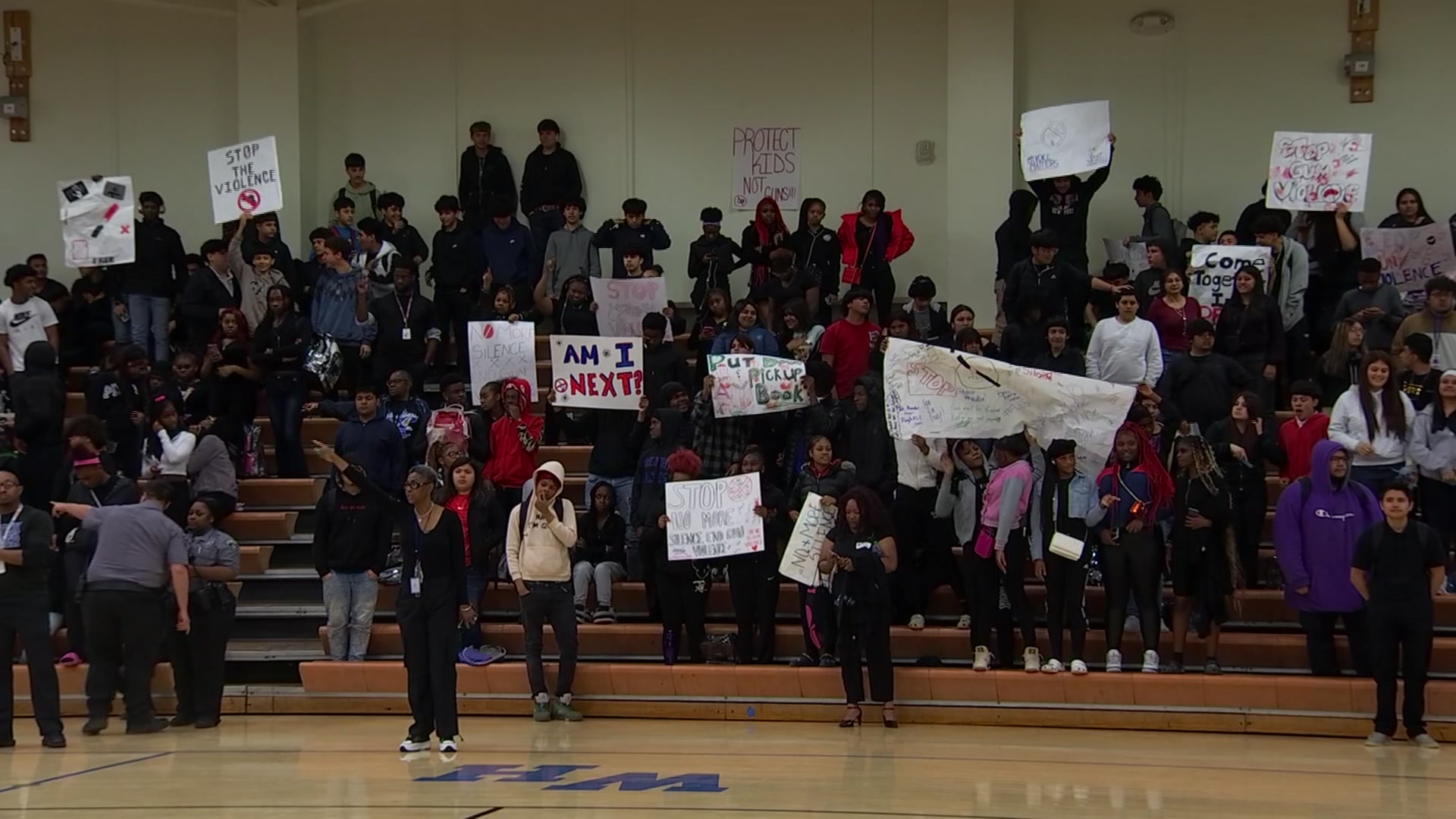On Thursday President Joe Biden announced a series of executive actions regarding gun control in what he said is a response to recent mass shootings and what he called an “epidemic and an international embarrassment” of gun violence in America.
One of the actions includes asking the Department of Justice to provide a model of "red flag" laws for states to follow. During Biden's speech on Thursday, he said states with such laws have seen a reduction in the number of suicides.
Red flag laws would allow law enforcement or family members to ask a judge to temporarily remove firearms from someone who is considered a danger to themselves or others.
"Law enforcement or family members could go to a civil judge and say we're worried about this relation or household member and these are the things that they're doing or make them not safe around firearms like social media threats, buying up lots of guns and ammunition, cruelty to animals which is a data-driven connection to gun violence," said Gyl Switzer, executive director of Texas Gun Sense. "There's due process, there's limitations on how long it can last, etc. it's based on domestic violence protective order that's based in all 50 states and it has been shown to prevent suicide it has been shown to be effective in preventing violence."
Get DFW local news, weather forecasts and entertainment stories to your inbox. Sign up for NBC DFW newsletters.
Texas Gun Sense describes itself as a non-partisan, non-profit group and according to their website, "Uses "gun sense" because we recognize citizens' right to own guns, but also believe our laws could be strengthened to include more sensible policies that would protect the general public from avoidable accidents and injuries from guns."
Switzer said red flag laws are also referenced to as extreme risk protection order laws. She said there have been bills filed in past in Texas and this session State Sen. John Whitmire (D-Houston) and State Rep. Vikki Goodwin (D-Austin) have introduced companion bills this session and hoping to get a hearing.
"It can only be helpful that the federal government is doing some work around language and incentivizing so we can get Texans safer with an extreme risk protection order this session or at least next session," said Switzer.
Local
The latest news from around North Texas.
Gun right advocates challenge "red flag" laws and some believe it could open the door for such a law to be taken advantage of.
"Keep in mind, all states have laws that say if somebody is going through a mental episode, the police have the ability to come out and confiscate their firearms, that already exists, and it already exists in Texas laws," said Edwin Walker, an attorney with the firm Walker & Taylor Law, which is the principal independent program attorneys for Texas Law Shield. "The police already have that ability so what this does is, it seeks to expand it and it's the expansion that's troublesome."
He's concerned the language used in red flag laws are too ambiguous.
"You get amorphous terms, like if somebody believes that a person is a danger to themselves without defining what danger is and the interpretation of what a danger is.... is entirely subjective, and so these laws are very upsetting in their non-specificity," explained Walker.
He also disagrees that such laws would curb violence and mass shootings.
Walker said he also worries people could use red flag laws to be vindictive.
"You're creating an opportunity for this law to be exploited, for this law to be used in ways it was not intended to. It would allow former spouses to seek protective orders against a former spouse, and in my practice, I've been practicing law for almost 30 years, I've done my fair share of family cases, and believe me, there are enough vindictive former spouses that would be more than happy to fabricate a reason to have police go kick down somebody's door and take their guns away from them," said Walker.
It's an argument Switzer said she's heard before, and said there are provisions in the current bill to prevent that and said based on domestic violence protection orders, "it's a non-issue."
"If folks would take the time to do some research and read the bill itself, their fears would be laid. The statements have to be made to the judge and evidence provided under oath, so there is perjury and violation of court procedure if you say untrue things and there's even redundancy that are in Sen. Whitmire and Rep. Goodwin's bill that talks about the penalty for perjury in false statements related to an extreme risk protection order," explained Switzer.
While the overall theme of the law is similar, states that currently have extreme risk protective order laws may be a little different.
There are some studies with different findings for how such laws have could have an impact. Based on state with current laws, some studies conclude there was a reduction with firearm suicidal rates. Others, like a report by RAND Corporation shows while their study inferred decrease in gun suicides, it also showed an "inconclusive evidence for the effect of state or federal laws prohibiting those with a mental illness from buying a gun on total and firearm suicides."



